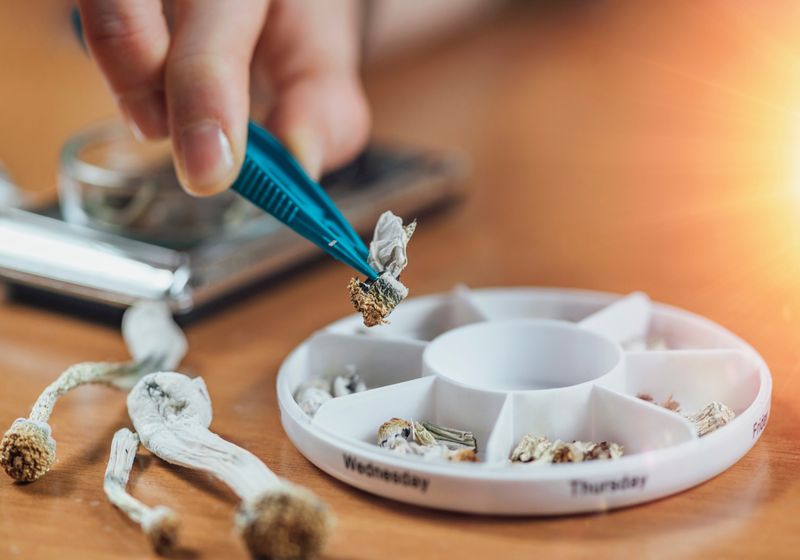Psilocybin reversed chronic pain and psychiatric symptoms in mice.
People who live with chronic pain also often experience psychiatric disorders, like depression or anxiety, complicating the treatment of both conditions. Although many of the same brain regions are suspected to be affected in pain and mood disorders, researchers have not been able to treat these simultaneously so far.1-3
In a study published in Nature Neuroscience, researchers from the University of Pennsylvania showed that a single dose of psilocybin, a compound with psychoactive properties, improved symptoms of both chronic pain and depressive and anxiety-like behaviors in mice.4
The researchers explored two mouse models of chronic pain: one caused by a nerve injury and the second from administration of an inflammatory agent. They saw that these animals also developed anxiety- and depression-like behaviors.
Joseph Cichon sees patients with chronic pain and depression. He and his team explored psilocybin as a potential treatment for both conditions.
Joseph Cichon
Four weeks after inducing these symptoms, the researchers injected mice with psilocybin. The next day, they observed decreased hypersensitivity in both groups of animals with chronic pain and a reversal of their mood-related behavioral changes. These positive effects lasted through the end of the study 12 days later.
To confirm where psilocybin exerted its effect, the team injected the compound’s active component, psilocin, into either an area of the brain responsible for pain and emotional or the lumbar nerve. Only injection into the brain led to analgesic and mood-enhancing effects.
Next, the researchers studied the mechanism of psilocin in this brain region to better understand how it exerted its effects. Whereas chronic pain led to hyperactivity in neurons, localized psilocin suppressed this signaling to levels comparable to mice that did not have chronic pain. Psilocin binds to multiple serotonin receptors, so to determine which one may be responsible for the observed effects, the researchers used two pharmacological agents to block psilocin from binding two of the receptors.5 Impairing psilocin binding from either serotonin receptor reversed its pain- and mood-relieving effects.
Joseph Cichon, an anesthesiologist at the University of Pennsylvania and study coauthor, has worked with patients who experience both chronic pain and depression, which can feed off of each other, worsening each condition. “This new study offers hope. These findings open the door to developing new, non-opioid, non-addictive therapies as psilocybin and related psychedelics are not considered addictive,” he said in a press release.

